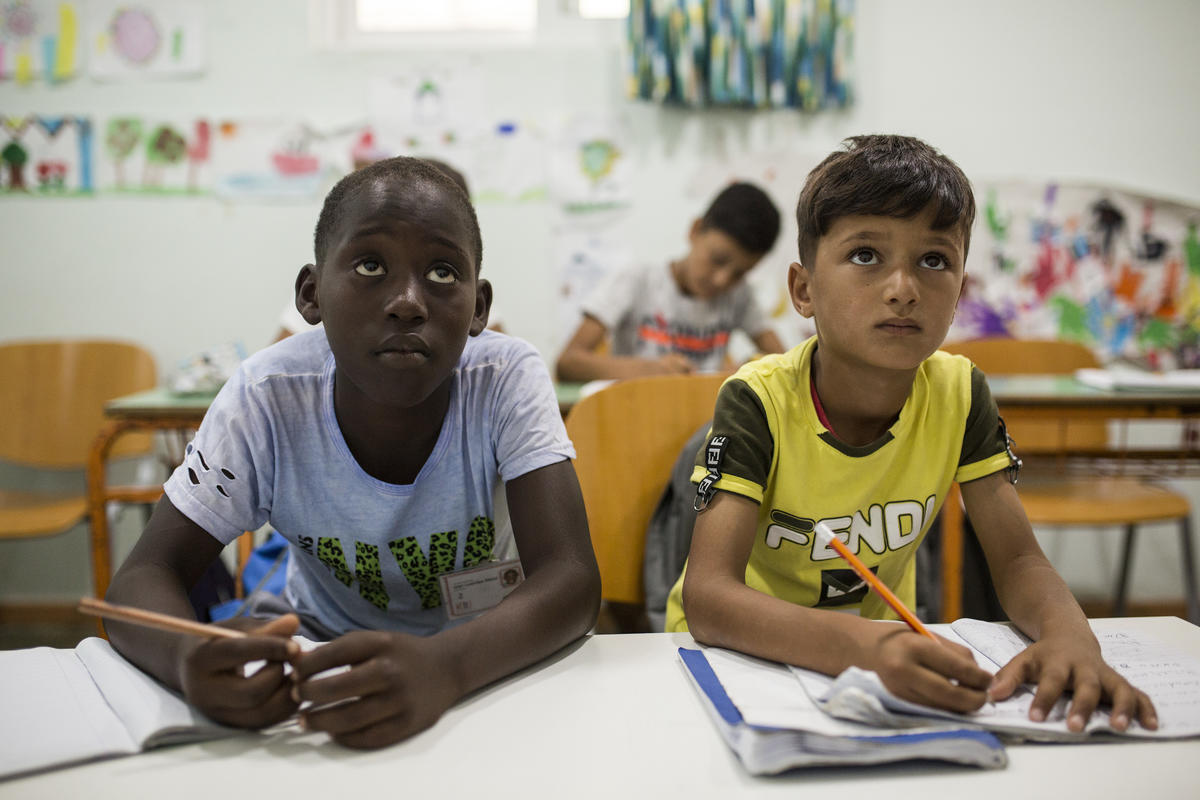Kosovo: New UNHCR paper on protection and return
Kosovo: New UNHCR paper on protection and return
UNHCR has just issued a new position paper aimed at guiding states and others involved in making decisions about whether individuals from Kosovo should receive international protection in the asylum country, or can be returned to Kosovo.
This is the latest in a series of similar position papers on Kosovo that we have issued periodically since the 1999 Kosovo crisis. The last such paper came out in August 2004, with an appendix including a non-exhaustive list of 145 separate security incidents, mostly targeting minorities (not including those that occurred during the explosion of violence that broke out across Kosovo in March 2004).
The report released today notes that over the past six months, the security situation has improved, in the sense that the number of serious crimes against members of minority communities has dropped. It notes that no ethnic-based killing has been reported since the drive-by shooting of a 16-year-old Kosovo Serb boy in June 2004; that the October elections to the Kosovo assembly were conducted peacefully; and that the recent visit by the Serbian President also proceeded without serious incident.
However, the report notes that "the security environment in Kosovo remains highly fragile and volatile. Minorities continue to suffer ethnically motivated incidents in which minority transports are stoned; members of minorities attacked, harassed or intimidated; property and possessions of minorities looted, destroyed or illegally occupied; grave sites of minorities vandalized; and hate graffiti painted on municipal buildings. Many of these incidents remain unreported as the victims fear reprisals from the perpetrators from the majority community."
One such incident occurred less than two weeks ago, on 28 March, when an elderly Kosovo Serb couple was severely beaten in an area where Serbs form a small minority in Istog/Istok municipality.
The report also says that continued security concerns - real and perceived - have seriously limited minorities' freedom of movement, affecting their access to essential services and employment. In the current volatile context, a serious ethnically motivated crime against an ethnic community could - as in March 2004 - spark a downward spiral towards inter-ethnic violence and civil unrest and lead to other serious ethnically motivated crimes. Serbs, Roma, and Albanians living in a minority situation are the most likely communities to be affected.
In light of the above, in its recommendations and conclusions, the paper says UNHCR maintains its position that Kosovo Serb, Roma and ethnic Albanians living in a minority situation should continue to benefit from international protection in asylum countries, either under the 1951 Refugee Convention, or through complementary forms of protection, and returns should only take place on a strictly voluntary basis.
With regard to the Ashkaelia, Egyptian, Bosniak and Gorani communities, UNHCR has changed its position slightly, noting that members of these groups are apparently better tolerated in general, although they may still be targeted on an individual basis.
As a result, members of these groups "may have individual valid claims for continued international protection which would need to be assessed in a comprehensive procedure." However, we are no longer saying that no members of these groups should be sent back under any circumstances.
The position paper also draws attention to some other groups at particular risk - making it clear that this is a non-exhaustive list. These include people married to someone from another ethnic group; people perceived to have been associated with the Serbian regime after 1990; and victims of trafficking.
The report also lists other categories of people who need to be viewed with particular care before being returned to Kosovo, including people who suffer from chronic or severe mental or physical illnesses for which no suitable specialized treatment or support is available, as well as severely handicapped people, and unaccompanied elderly people and separated children without relatives or care-givers to look after them in Kosovo.









